Name: Nick Bodurian
Class Year: 2012
Title: Associate Investment Professional
Organization Name: Prospect Capital Management
1. In one sentence, what does your job entail?
I am responsible for sourcing and conducting due diligence on private middle market companies seeking financing from both an equity and debt perspective.
2. What planned and unplanned events connected you to your industry and your first employer after Holy Cross? How did you learn/decide it was a good fit for you?
The summer after my sophomore year at Holy Cross I did my first internship at GE Capital as part of the Financial Management Program (“FMP”). This internship opportunity came through the Career Development Summer Internship Program. I did a second internship at GE Capital the following summer, and then accepted a full time position at GE Capital in FMP post-graduation. What made me decide to pursue a career in corporate finance initially was my strong underlying interest in evaluating businesses, coupled with my accounting background from Holy Cross. Second, I really enjoyed the corporate culture at GE, and knew that the company had a strong track record for educating their employees and building future business leaders. Both aspects of my first job/employer came out to be 100% true. I significantly expanded my core technical finance skills and analytical thinking, but also my soft-business skills such as effective and efficient communication and negotiating. All of what I have described were “planned events” through my initial time at GE Capital. However, life always brings unplanned events as well. In my last rotation on FMP, I was given a role in underwriting in a business unit that provides leveraged loans to middle market companies being bought by private equity sponsors. I very much enjoyed this role, and realized that this was the career path that I wanted to pursue (versus traditional corporate finance). However, General Electric, and in particular GE Capital, was going through large changes at the time. There was a meaningful corporate strategy shift to move away from “banking” and focus the conglomerate on industrial businesses. Part of this decision by GE was due to stricter regulatory requirements on large financial institutions after the financial crisis of 2008/2009. While the traditional banking sector overall faced new regulations at the time, there started to be large growth in the alternative asset management sector, such as private equity and debt firms. I saw this trend occurring (similar to other colleagues and friends) and decided to seek my next role at a private markets firm. This led me to my second employer, Partners Group, a global private markets asset manager. The key takeaway from this “career event” for me is to make sure you get the most out of “planned events” in your career, by doing the best you can do at the job you are currently doing, because “unplanned events” will occur which will bring difficult decisions, but also promising career opportunities! How one performs in “planned events” I’ve noticed in my career dictates how one can effectively adapt to “unplanned events” in a career.
3. What were you involved in when you were on campus?
I was very involved in the Economics department when I was on campus, since I was an Economics-Accounting major. I was part of the Student Advisory Committee for several years, and then was the Chairman of the committee for two of those years. I was also a member of the Economics department Honors Program, in which I spent over a year conducting research and writing a senior thesis on the financial crisis of 2008/2009. I was a member of the pre-business program, and took a class that managed the student managed endowment fund. I volunteered through the SPUD, and was a member of the club baseball team for four years. In my last two years, I was also a tour guide for the admissions office.
4. What was your major and how did it affect your career decisions?
I majored in Economics-Accounting. While I did not pursue a traditional career in public accounting, accounting is the basis for everything in finance. Any student interested in pursuing a career in finance must have a strong understanding of accounting. But that does not and should not preclude non-accounting majors from pursuing a career in finance. While the technical background has surely helped me in my career, the analytical thinking and quantitative analysis aspects of accounting is what has helped me the most in my career. In my field, it is crucial to evaluate businesses from both a quantitative and qualitative aspect, using fact-based assertions to drive investment theses.
5. What are one or two skills that you developed at Holy Cross that you use in your work?
Aside from my technical background, one of the most important skills that I developed meaningfully at Holy Cross is my written and oral communication skills. A lot of my job is being able to effectively communicate both internally and externally. From an internal perspective, I have an investment committee that I present my investment opportunities to in order to obtain approval to make an investment. In order to obtain approval, I must effectively communicate the merits and risks of an investment opportunity, through both quantitative and qualitative assertions, written in memos and orally in person. There is always “pushback” from investment committee members—that is their job, to play “devil’s advocate” and ask as many questions as possible. Therefore, it is a continual iterative process when evaluating investment opportunities, and being able to effectively communicate internally is paramount to success. I must also work with external parties, such as management teams and other private equity firms, in order to negotiate the best possible deal terms for my firm. It’s a craft that I am still developing and will be developing over the rest of my career, but Holy Cross established a strong foundation to start building from.
6. What advice do you have for students on campus today?
If you are interested in pursuing a career in finance, your GPA will be the first criteria that a company will look at from both an internship and entry-level job perspective. In other words, make sure you are getting it done in the classroom first! Second, I would recommend taking quantitative classes, such as accounting, economics, math, or pre-business/investment classes. Holy Cross students largely have strong communication skills, due to the rigorous liberal arts curriculum in place, but it is important to develop quantitative reasoning skills in order to be “on par” with competing students from business programs at other colleges and universities. Third, develop a strong interest in reading the Wall Street Journal or New York Times business section. I’ve probably learned the most about financial markets, the economy, and businesses from reading the WSJ. Pick topics that interest you, and read as much about them as possible. Read the articles critically, and if a concept does not make sense to you, don’t just move onto the next article, figure out the concept because that is how real learning takes place. Lastly, it is absolutely crucial to understand what it means to have a career in finance, and there are many different types of careers in finance. Talk with as many people as possible, ask them what they like and dislike about their jobs. People love talking about themselves, so “pick as many brains” as possible.





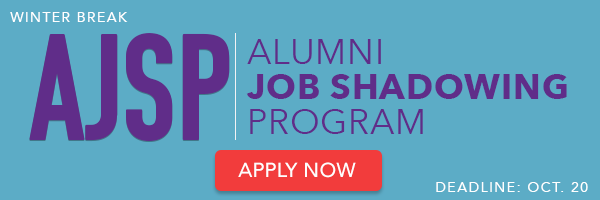
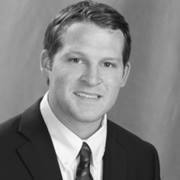 Meet Joe Curran ‘
Meet Joe Curran ‘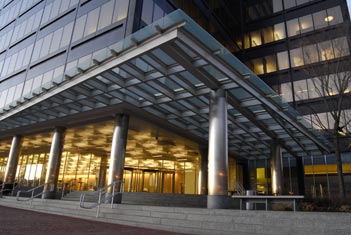 Give us an example of how you have applied your academic learnings to your internship?
Give us an example of how you have applied your academic learnings to your internship?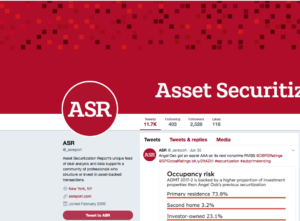 I typically start the day by logging on to the company’s Twitter account (follow
I typically start the day by logging on to the company’s Twitter account (follow 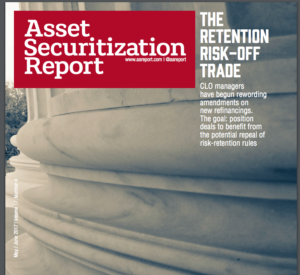 How did this experience influence or connect to your future career plans / goals?
How did this experience influence or connect to your future career plans / goals?